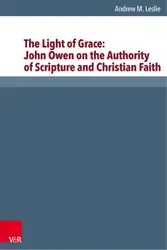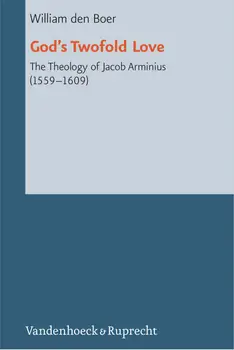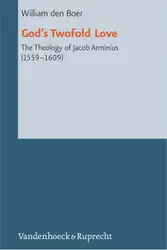Even though it has always been widely debated, the theology of Jacob Arminius (1559–1609) has not received the scholarly attention one would expect. Given also its remarkable influence, it is surprising how little research has been devoted to it. Only since the 1980s has the world of scholarship seen some movement on this front. The present study by William den Boer offers a new contribution to the understanding of Arminius's theology by focusing on the theological motive that lay at its very foundation. Arminius has been characterized as a theologian of free will, of creation, or of freedom, and lately also as a theologian of the assurance of faith. The question as to Arminius's central concern in his theology has been answered in different ways, with each author focusing on aspects of differing degrees of importance. William den Boer defends the thesis that another characterization needs to be added, and designates Arminius as a theologian of the justice of God, or more precisely, as a theologian of the twofold love of God. He goes on to illustrate how these two characterizations are valid at one and the same time, and why they do not exclude but include all other characterizations that have been offered by placing them in their proper perspective.In Part 1 the author posits that the leading motif of Arminius's theology lay in a careful defense of the justice of God. Part 2 considers the reception of his theology in the discussions between Remonstrants and Counter-Remonstrants during the Hague Conference – Haagsche or Schriftelicke Conferentie – of 1611. Finally, Arminius's theology is placed within the context of sixteenth-century debates on the cause of sin and God's relationship to evil.

Calvinus sacrarum literarum interpres : Papers of the International Congress on Calvin Research
book
Divine Accommodation in John Calvin's Theology : Analysis and Assessment
Arnold Huijgen
book
Calvinus clarissimus theologus : Papers of the Tenth International Congress on Calvin Research
book
Rights in the Law : The Importance of God's Free Choices in the Thought of Francis Turretin
James E. Bruce
book
Britain and the Bestandstwisten : The Causes, Course and Consequences of British Involvement in the Dutch Religious and Political Disputes of the Early Seventeenth Century
Eric Platt
book
The Light of Grace: John Owen on the Authority of Scripture and Christian Faith
Andrew M. Leslie
book
Calvinus Pastor Ecclesiae : Papers of the Eleventh International Congress on Calvin Research
book
Reformation of the Commonwealth : Thomas Becon and the Politics of Evangelical Change in Tudor England
Brian L. Hanson
book
Petrus van Mastricht (1630-1706): Text, Context, and Interpretation
book
Reprobation: from Augustine to the Synod of Dort : The Historical Development of the Reformed Doctrine of Reprobation
Peter Sammons
book
Catholic Today : A Reformed Conversation about Catholicity
Willem van Vlastuin
book
The Ground, Method, and Goal of Amandus Polanus' (1561–1610) Doctrine of God : A Historical and Contextual Analysis
Stephen B. Tipton
book

